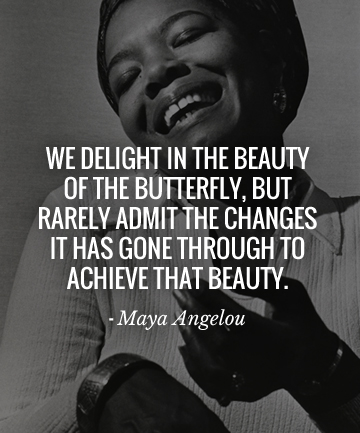In recent years, some of SA’s most talented and influential youth have made names for themselves on the world stage. From politician Lindiwe Mazibuko to comedian Trevor Noah, more and more young professionals are pursuing global aspirations and catapulting their careers to new heights. Interestingly, many workplace studies on millennials reveal that this generation is particularly keen to work abroad. A PricewaterhouseCoopers study titled The Female Millennial: A New Era of Talent claimed that 71% of female millennials would like to work outside their home countries during their careers. The study also revealed that the current global population of international assignees is 20% women and 80% men. These figures beg the following three questions:
WHY ARE MILLENNIAL WOMEN PARTICULARLY INTERESTED IN TAKING UP PROFESSIONAL GLOBAL OPPORTUNITIES?
In an era of increasing hyperconnectivity, it seems the world’s at our fingertips. In fact, research company Nielsen describes the millennial generation as “the first to come of age with cable TV, the Internet and cellphones”. Therefore, regular exposure to international media and information naturally inculcates a fascination for foreign cultures, growing an international network and gaining a different perspective. Lindelwa Skenjana, a digital marketer in her 20s who left her job in SA to further her studies abroad, agrees, but adds wanderlust and a thirst for adventure to the mix. “Because I was born in Durban, grew up in Pretoria, went to university in Cape Town and worked in Johannesburg, I felt I’d experienced all of SA’s major cities and I wanted to know what other cities and countries had to offer,” she explains. There’s also an awareness among young women that the right kind of international experience can fast-track their careers. Nswana Mwangu, an investment banker in her 20s, left the country to study for a Master’s in investment management because she knew it would be a “step-change” in her career when she returned to SA. Yaseen Schrueder, talent specialist in financial services, supports the notion that, in general, professional international experience and obtaining accredited qualifications abroad can both strengthen the profiles of job candidates and increase their chances of promotion, especially in multi-national companies. He says professional bodies such as the SA Institute of Chartered Accountants and the Law Society of SA recognise qualifications obtained abroad as being relevant in our country. Lungile Masuku, a financial analyst in her 20s, however, says her primary reason for accepting secondment abroad was for personal, rather than professional growth. “I felt my life was developing quicker than I’d anticipated and I needed time alone in a different environment to discover myself,” she recalls. And she’s far from alone in this: research indicates that even though highperforming millennial women have ambitions to reach the top of the ladder in their fields, finding opportunities along that journey for self-discovery can be just the breath of fresh air they need.

DO EMPLOYERS RECOGNISE THIS AMBITION IN THEIR YOUNG, FEMALE TALENT POOL?
Schrueder believes the international assignee ratio of men to women is a reflection of the current diversity disparities in the workforce. Nonetheless, his view is that “employers with hiring processes which require candidates to express their willingness to work on international assignments are likely to have a good understanding of how mobile their female talent pool is, and on what conditions they’re willing to be stationed abroad (for example, with a spouse or family relocation support)”. He adds that another reason young professionals in general may be missing out on global opportunities is that their career discussions with employers are often centred primarily on their personal desires for international experience, rather than aligning business needs with their own ambitions to gain international experience. He says organisations offer international assignments in order to give employees organisational experience that isn’t available in their home country, allow them to gain contextual experience of foreign operations and deliver skills transfer in a foreign country which lacks specific expertise. In general, though, high performers who are able to articulate how their organisation will benefit from their time abroad stand a better chance of being given international opportunities, says Schrueder.

HOW SHOULD WOMEN POSITION THEMSELVES IN THE WORKPLACE TO BUILD GLOBAL CAREERS?
Firstly, Schrueder advises women to conduct research on their organisation’s strategy, identify the key markets for it and, more specifically, pin-point the countries they want to target for global experience. For instance, some companies have aggressive ambitions in Africa or across emerging markets, while others have headquarters in major cities in developed markets. Once the ideal market has been identified, it’s easier to analyse the gap that could be filled either by working in that country or after returning to one’s home country. Schrueder also advises women considering joining a company with an international presence to conduct research on its maturity, track record and policy regarding employee mobility. This is because, in some cases, despite having an international footprint, companies might not have regular global rotation programmes or the resources to manage the administration and logistics needed to support international mobility. They might also lack experience in successfully moving employees from one office to another, or they could have strict criteria regarding which employees are eligible for global opportunities. Secondly, he advises women to be vocal about their global ambitions in discussions with managers and sponsors, and to take advantage of HR processes which enable platforms for international exposure. Again, he stresses the importance of explaining the return on investment for the employer. In addition, I personally believe it’s also worth investigating professional fellowship opportunities available through various organisations and government embassies. For instance, the Mandela-Washington Fellowship for Young African Leaders is a USA-led initiative which provides exceptional young leaders from sub-Saharan Africa with the opportunity to hone their skills in business, entrepreneurship, civic leadership or public management. There are also several other programmes available through the American Embassy ranging from entrepreneurship to technology and sports. More than ever before, young career women in SA can pursue their global ambitions, enhancing both their careers and their own hunger for adventure.

Article by: Magcino Radebe | Mbewu Movement Founding Member
Magcino Radebe holds a Master of Philosophy in Politics, Philosophy and Economics (University of Cape Town). She is an Executive Assistant in Financial Services. She is also a freelance writer at Ndalo Media and writes Executive Intelligence articles for Destiny Magazine.
Note: This article was originally published in Destiny Magazine (November 2016)
